Michael Fallon, the British defence secretary, has said mistakes were made in Afghanistan, as the last UK base was handed over to the control of the Afghan security forces, bringing to an end British troops’ campaign in Helmand province.
At the handover ceremony at Camp Bastion on Sunday British and US troops stood side by side as the union flag and the Stars and Stripes were lowered at the base for the last time.
It brings to an end a costly chapter in the 13-year campaign, with the vast majority of the 453 troops who died in the conflict losing their lives fighting the Taliban insurgency in Helmand.
Fallon said politicians and generals had made some poor decisions but much had been achieved since troops arrived in 2001. As UK combat operations end, Afghan security forces will take a greater role.
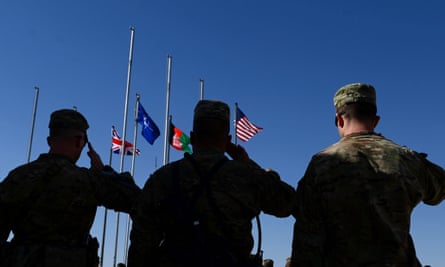
The defence secretary said: “Mistakes were made militarily, mistakes were made by the politicians at the time and this goes back 10, 13 years.
“Clearly the numbers weren’t there at the beginning, the equipment wasn’t quite good enough at the beginning and we’ve learned an awful lot from the campaign. But don’t let’s ignore what has been achieved.”
He said the bulk of British troops would be home by Christmas, with a few hundred staying to help with training at the officer academy.
“Our armed forces’ tremendous sacrifice laid the foundations for a strong Afghan security force, set the security context that enabled the first democratic transition of power in the country’s history and stopped it being a launchpad for terrorist attacks in the UK.”
He said the Taliban had not been defeated, but Afghan forces were taking “full responsibilities”.
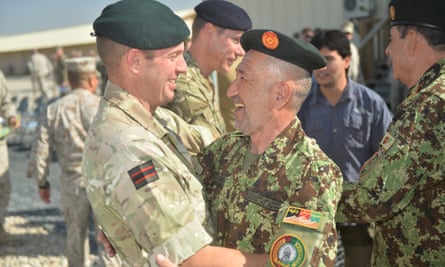
Fallon said UK support would continue through “institutional development”, the Afghan National Army Officer Academy and development aid.
The UK, which has had a presence in the southern province since 2006, is preparing to withdraw combat personnel entirely from Afghanistan by the end of the year.
Several hundred military advisers and trainers are expected to remain in the Afghan capital, Kabul, after the end of the year, but ministers insist they will not fight.
Camp Bastion has been the centre of British operations in the country since UK troops were sent to Helmand in 2006.
The government said at the time that UK forces would be there only to protect reconstruction, but they quickly got caught up in the struggle against the Taliban insurgency.
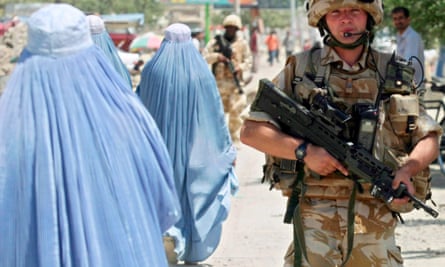
At the peak of the Afghan conflict there were 10,000 British personnel there, with 20,000 US marines, Danes, Estonians and other nationalities at 180 bases and checkpoints.
Camp Bastion, surrounded by desert, grew into a sprawling base and at its largest had a perimeter of 22 miles.
Now its runway – at one point the fifth busiest UK-operated airstrip – is expected to handle commercial flights.
In recent months, hundreds of military vehicles and shipping containers with kit have been brought back to the UK.
A battalion of troops, believed to be Americans, is expected to be the only foreign force to remain.
Commenting on the handover, Helmand’s provincial governor Naim Baluch said the UK’s armed forces and their allies had helped to improve security in Helmand. “We are very grateful for the courage and commitment of your soldiers and we are ready to deliver security ourselves,” he added.
However, the chief of the general staff, General Sir Nick Carter, has admitted security in Helmand remains difficult.
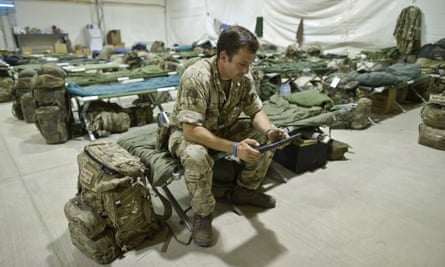
This year, Taliban operations to reclaim towns such as Sangin and Now Zad, once held by British forces, have inflicted heavy casualties on Afghan forces.
Despite these difficulties, the senior UK officer in Helmand, Brigadier Rob Thomson, blasted “erroneous” comparisons between the critical situation in Iraq and what may happen in Afghanistan.
“Iraq and Afghanistan are very different in terms of the environment here, whether that is the geography, the culture, their societal structures and so on,” he said.
“The way we are ending the mission is very different. We are transitioning now for the next two years.
“There will be continued support in the ministry of defence and the ministry of interior to people, there will be train, assist and advise missions through parts of the country. It is not a cliff edge end here.
“It is going to be a transition and I think that is really important. We have not seen any evidence of Isis in Helmand at all.”
Thomson paid tribute to those who had died, saying: “We will never forget the 453 soldiers, sailors and airmen who have made the ultimate sacrifice.”
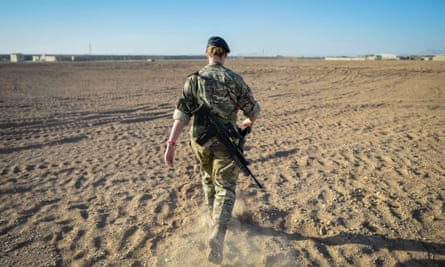
The chief of the defence staff, General Sir Nick Houghton, said: “Over 13 years of operations in Afghanistan, thousands of men and women from all of our armed forces have played a hugely significant role in delivering a security legacy for the people of Afghanistan.
“It has required remarkable moral courage, tenacity and innovation to achieve our objectives in the most testing environments.”
Before the handover, the few remaining British soldiers spoke of how strange it had been to see Bastion wind down.
Regimental Sergeant Major Robert Mansel, 37, from Swansea and of 1st The Queen’s Dragoon Guards, said whenever he returned to Camp Bastion he had been “completely in awe of the lights and the noises and the sounds.
“I was stood yesterday morning when they turned the last generator off where we were previously living and there was an eerie silence, which was a pretty strange feeling.
“Emotionally it was like waking up in a city and everyone has disappeared. Very strange feeling indeed.”
The soldier spoke of his sense of pride at a “job well done” in Afghanistan, and added: “Ultimately it will keep the streets of Britain safe in the long run.”
Camp Bastion: a timeline
January 2006: Camp Bastion is built near Lashkar Gah, the capital of Helmand province, five years after the start of the US-led war against the Taliban. The base acts as the headquarters for 28,000 International Security Assistance Force personnel, led by Britain.
21 November 2006: The then prime minister Tony Blair says on a visit to Camp Bastion that the base is “where the fate of world security in the early 21st century is going to be decided”.
18 May 2010: Camp Bastion has doubled in size over the previous year to 35 square kilometres and now includes Camp Leatherneck, the American camp-within-a-camp that is home to 12,000 US troops.
8 June 2011: Camp Bastion becomes UK’s fourth busiest airfield, with more air traffic than Luton, Edinburgh and Birmingham airports. To deal with the capacity, the RAF builds a state-of-the-art air traffic control tower replacing what was previously a small cabin on stilts.
2011/12: Camp Bastion is home to 14,000 people during its peak, growing to cover an area the size of Reading. Its two-mile runway supports up to 600 aircraft and helicopter movements a day.
September 2012: Prince Harry arrives in Camp Bastion for four-month tour of duty as a co-pilot gunner in Apache attack helicopters.
15 September 2012: Two US marines are killed when insurgents attack Camp Bastion, breaching the perimeter of the base and damaging aircraft and buildings. Nato forces kill 18 of the Taliban attackers. A report released by MPs in April 2014 blamed inadequate defences and “high-level complacency” for the relative success of the Taliban assault.
19 August 2013: The headquarters of the British military operation in Afghanistan is moved to Camp Bastion from Lashkar Gah, a milestone in the drawdown of the military presence.
October 2013: The first steps are taken at Camp Bastion towards the eventual British withdrawal and handover to Afghan forces as a training camp for Afghan National Army forces opens. The plan is for the training to eventually be taken over by local instructors.
1 April 2014: Britain hands over control of Helmand province to the US Marines, bringing to an end eight years of British command in the area.
26 October 2014: British troops leave Camp Bastion, which is handed over to the Afghans at 10am local time in a ceremony marking the end of Britain’s war in Afghanistan. Josh Halliday
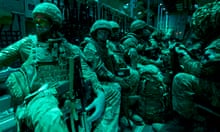

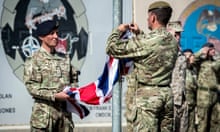
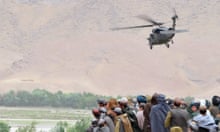
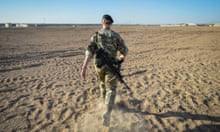

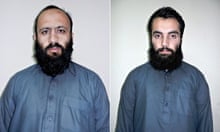
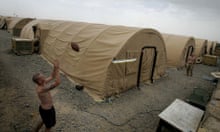
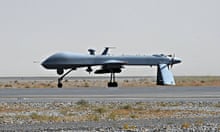
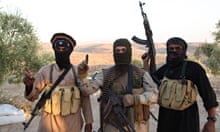
Comments (…)
Sign in or create your Guardian account to join the discussion